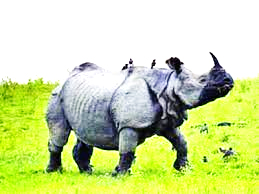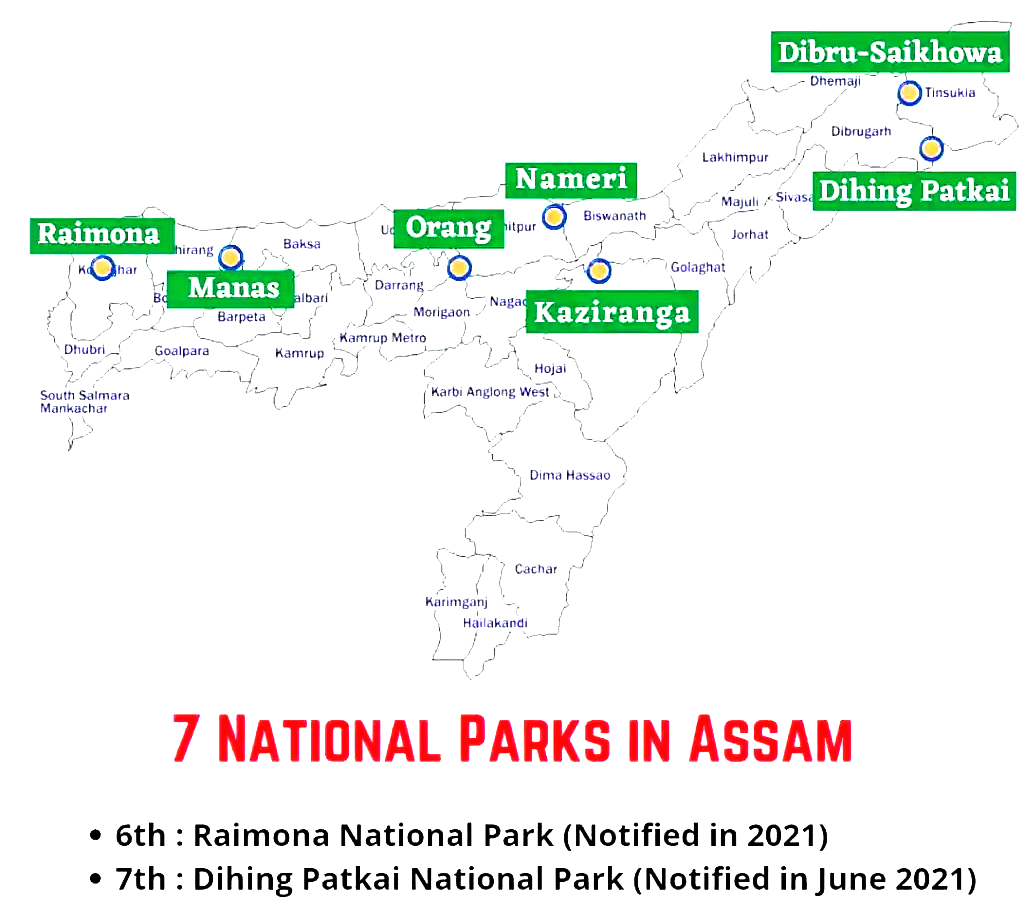Important Facts For Prelims
Greater One-Horned Rhino
- 19 Feb 2022
- 3 min read
Why in News?
Recently, a case of poaching of the world-famous one-horned rhino has been suspected inside the Kaziranga National Park in Assam.
What are the Key Points related to One-Horned Rhino?
- About:
- There are five species of rhino – white and black rhinos in Africa, and the greater one-horned, Javan and Sumatran rhino species in Asia.

- IUCN Red List Status:
- Black Rhino: Critically endangered. Smaller of the two African species.
- White Rhino: Near Threatened. Researchers have created an embryo of the northern white rhino by using In Vitro Fertilization (IVF) process.
- One-Horned Rhino: Vulnerable
- Javan: Critically Endangered
- Sumatran Rhino: Critically Endangered. It has gone extinct in Malaysia.
- IUCN Red List Status:
- Only the Great One-Horned Rhino is found in India.
- Also known as Indian rhino, it is the largest of the rhino species.
- It is identified by a single black horn and a grey-brown hide with skin folds.
- They primarily graze, with a diet consisting almost entirely of grasses as well as leaves, branches of shrubs and trees, fruit, and aquatic plants.
- There are five species of rhino – white and black rhinos in Africa, and the greater one-horned, Javan and Sumatran rhino species in Asia.
- Habitat:
- The species is restricted to small habitats in Indo-Nepal terai and northern West Bengal and Assam.
- In India, rhinos are mainly found in Assam, West Bengal and Uttar Pradesh.
- Assam has an estimated 2,640 rhinos in four protected areas, i.e. Pabitora Wildlife Reserve, Rajiv Gandhi Orang National Park, Kaziranga National Park, and Manas National Park.
- About 2,400 of them are in the Kaziranga National Park and Tiger Reserve (KNPTR).
- Protection Status:
- IUCN Red List: Vulnerable.
- CITES: Appendix I (Threatened with extinction and CITES prohibits international trade in specimens of these species except when the purpose of the import is not commercial, for instance for scientific research).
- Wildlife Protection Act, 1972: Schedule I.
- Threats:
- Poaching for the horns
- Habitat loss
- Population density
- Decreasing Genetic diversity.
What are the Conservation Efforts?
- The five rhino range nations (India, Bhutan, Nepal, Indonesia and Malaysia) have signed a declaration ‘The New Delhi Declaration on Asian Rhinos 2019’ for the conservation and protection of the species.
- Recently, the Ministry of Environment Forest and Climate Change (MoEFCC) has begun a project to create DNA profiles of all rhinos in the country.
- National Rhino Conservation Strategy: It was launched in 2019 to conserve the greater one-horned rhinoceros.
- Indian Rhino Vision 2020: Launched in 2005, it was an ambitious effort to attain a wild population of at least 3,000 greater one-horned rhinos spread over seven protected areas in the Indian state of Assam by the year 2020.





